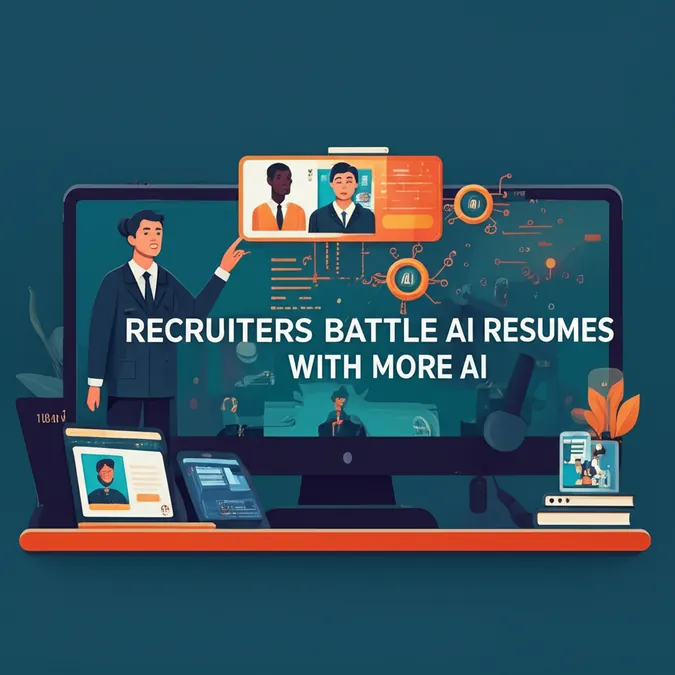Developer Offer
Try ImaginePro API with 50 Free Credits
Build and ship AI-powered visuals with Midjourney, Flux, and more — free credits refresh every month.
AI Is Spawning Exciting New Career Opportunities

Imagine attending a social gathering in the near future and introducing yourself as a "synthetic reality producer." This title would likely spark considerable intrigue. Yet, by 2030, it might just be a common job designation.
There has been significant discussion recently about artificial intelligence potentially displacing job opportunities, affecting everyone from developers to content creators. However, AI will not operate in complete autonomy; there will always be a demand for skilled professionals to ensure these systems function as intended. Consequently, we may witness the emergence of fascinating new job categories that are currently beyond our imagination.
For businesses looking to adapt, understanding this shift is crucial. You can explore 5 ways to bridge the growing AI skills gap in your company.
"A few years ago, nobody would've imagined needing a team to train your chatbot to act like your brand, but here we are," remarked Daniel Gorlovetsky, CEO at TLVTech. "The next wave of jobs will be about shaping how AI shows up in the world, not just building it."
We consulted Gorlovetsky and other industry leaders and experts to forecast the types of jobs AI might generate, resulting in an intriguing list of possibilities:
1. AI Agent Interaction Architect
This individual will be responsible for "designing how AI agents interact with each other, with systems, and with humans across complex workflows," according to Tal Lev-Ami, CTO and co-founder of Cloudinary. "In the present, we build software for user interfaces, but in the very near future, we'll be architecting agent conversations that will define how one LLM consults another, how visual data APIs are invoked in context, and how these multi-agent systems stay coordinated, reliable, and permission-aware. This role will sit at the intersection of system design, security, and UX -- way beyond the way we know it today."
2. AI Agent Orchestration Lead
In industrial environments, this professional will "manage and optimize the deployment of autonomous software agents -- scheduling, inventory, quality agents -- across production," explains Karan Talati, CEO of First Resonance.
3. AI Audience Strategist
"This person can use AI to analyze audience behavior and spot emerging trends," says Yury Smagarinsky, CEO at Yoola. "They will help creators and teams adapt content to micro-trends in real time, and even predict which formats are likely to succeed."
4. AI Behavior Architect
"As AI agents become more autonomous and embedded in everything from customer service to supply chain management, someone needs to design how these agents behave, not just their functions, but their tone, ethics, edge cases, and escalation logic," states Gorlovetsky. "Think of it like UX design, but for decision-making and interaction flow in AI systems. It's part psychology, part ops, part systems design."
It's important to remember that AI itself won't take your job, but a lack of adaptation might.
5. AI Data Context Architect
This role involves "ensuring AI systems are trained and prompted within the right business context," notes Steve Zisk, senior product marketing manager of Redpoint Global. "Think of it this way: AI doesn't just need data -- nor can that be acceptable -- it needs ready data. But beyond the usual 'clean and accurate' definitions, context will be everything. For instance, what does this field in the customer profile mean to marketing versus finance? Should a model treat this behavior as churn risk or loyalty potential? An AI Data Context Architect will bridge the gap between data engineers, data scientists, and business users to ensure AI outputs are not only accurate, but also relevant, compliant, and useful."
6. AI Enablement Partner
These professionals will assist non-technical teams—such as sales, marketing, and operations—to "effectively adopt AI in their workflows," says Jiaxi Zhu, head of analytics and insights at Google. "The AI enablement partner brings a deep understanding of organizational behavior, change management, and applied AI literacy. Key responsibilities should include diagnosing team and personal-level barriers to AI adoption, such as workflow friction, trust gaps; and designing and customizing onboarding programs for AI copilots, agents, and automation tools, including trainings, pilot programs, and on-the-job coaching."
Developing the most critical job skill for the AI revolution is key to thriving.
7. AI Integrity Analyst
This position would guard against issues like "insecure or unusable code, customer service bots failing to handle anything beyond the simplest requests, and recruitment platforms introducing bias," according to Sarah Doughty, vice president of talent operations at TalentLab. This role entails "ensuring that AI outputs are accurate, safe, and aligned with company goals and ethics. This role could combine elements of QA, risk management, compliance, and even user experience. Over time, I could see companies developing entire AI oversight units tasked not just with cleaning up after AI, but proactively guiding how it's integrated and monitored across the business."
8. AR Creator
This job will be a "hybrid of digital artist, AI prompt engineer, and brand storyteller," predicts Anna Belova, CEO and founder at DEVAR. "Even with AI, time is precious -- and that's where AR creators come in. These professionals combine AI tools with creative strategy to craft immersive experiences quickly, affordably, and at scale. I believe AR creator will soon be as common a title as video editor or content strategist."
9. Autonomous System Integrator
This specialist will "specialize in orchestrating complex, multi-agent AI systems, ensuring communication and task execution across various AI models," says Nic Adams, co-founder and CEO at 0rcus.
Learn about 4 ways to leverage AI for your business advantage.
10. Factory Intelligence Architect
This professional would be responsible for "designing the logic, workflows, and interaction rules between AI agents, systems, and human operators," according to Talati.
11. Manufacturing Agent Coach
This role involves "coaching digital agents by tuning their parameters, reviewing edge-case decisions, and guiding continuous improvement -- much like managing a team of junior staff," Talati adds.
12. Multimodal AI Designer
"As lines between input interfaces are blurred in favor of natural conversational inputs, a Multimodal AI designer specializes in designing seamless interfaces across voice, gesture, text, image, and touch," explains Tej Kalianda, UX designer at Google.
Whether AI impacts your job positively or negatively often depends on your skillset.
13. Prompt Ethnographer
This position consists of "UX researchers who study how people across cultures and languages use AI to ensure inclusive understanding," says Kalianda.
14. Prompt Scene Editor
This professional would "work at the intersection of language and vision, where one misplaced word can turn a dreamy picnic into a Lovecraftian nightmare," describes Gadi Kovler, CEO of Radius. "It's not just about writing prompts, you've got to notice what feels off, what looks wrong, what gives uncanny-valley vibes, and what's passable as human. A good prompt scene editor knows how to talk to the machine to get the exact result. They understand framing, tone, lighting, coherence between scenes, and how to steer the AI toward usable results as required by the director, without starting from scratch. In a world where high-quality content will be instant, someone still needs to make sure it makes sense."
Some believe the Singularity is imminent, according to Sam Altman.
15. Synthetic Reality Producer
"This person curates AI-generated environments or entire narratives for training, entertainment, or simulation, as AI-generated video and voice become mainstream," Gorlovetsky envisions. "Someone will need to manage these casts of virtual characters and ensure consistency, accuracy, and impact. It's like being a showrunner, except your actors are generative models."
Want more stories about AI? Sign up for Innovation, our weekly newsletter.
Compare Plans & Pricing
Find the plan that matches your workload and unlock full access to ImaginePro.
| Plan | Price | Highlights |
|---|---|---|
| Standard | $8 / month |
|
| Premium | $20 / month |
|
Need custom terms? Talk to us to tailor credits, rate limits, or deployment options.
View All Pricing Details

